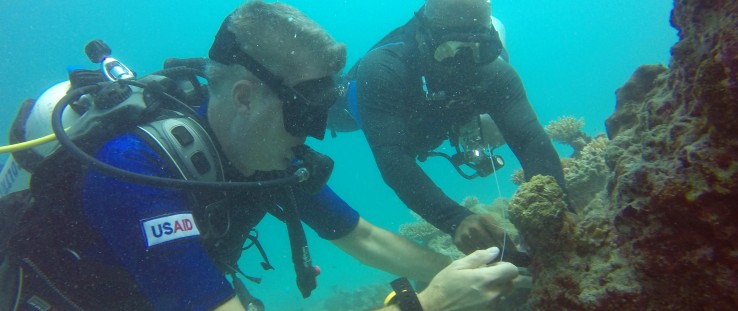 Volunteer “citizen-scientists” in Maldives monitor marine biodiversity and collect data used to guide conservation and management efforts.
USAID
Volunteer “citizen-scientists” in Maldives monitor marine biodiversity and collect data used to guide conservation and management efforts.
USAID
 Volunteer “citizen-scientists” in Maldives monitor marine biodiversity and collect data used to guide conservation and management efforts.
USAID
Volunteer “citizen-scientists” in Maldives monitor marine biodiversity and collect data used to guide conservation and management efforts.
USAID
Climate change is a pressing reality for Maldives, the Indian Ocean’s picturesque archipelago comprising 1,200 islands. With the highest points of the island nation no more than 8 feet above sea level, it is one of the most vulnerable countries in the world to the impacts of climate change—from sea level rise to more frequent and intense weather events.
High population density, dependence on climate-sensitive industries like fisheries and tourism, and over exploitation of natural resources further exacerbate its vulnerability.
As the threats created by climate change to small island nations like Maldives are becoming more imminent, more Maldivians are beginning to recognize the urgency of better protecting their fragile ecosystems. While there is general agreement among Maldivians that resources are being depleted, only groups that are directly involved in resource usage, such as fisherfolk, have strong concerns about this trend, according to a recent survey.
That survey also found that individuals and communities on North Ari Atoll, which comprises the largest clusters of islands in Maldives, tend to rely on the government to come up with laws and regulations to conserve the ecosystem and to prepare for climate change adaptation rather than taking individual action.
Through REGENERATE, or Reefs Generate Environmental and Economic Resiliency for Atoll Ecosystems, USAID, in partnership with the International Union for the Conservation of Nature (IUCN), is helping Maldives increase citizen awareness of the impacts of climate change on their lives and livelihoods—and empower citizens to play an active role. The ultimate goal of the project is to strengthen sustainable management of coastal resources, particularly coral reefs.
Coral reefs are precious resources not only because of their beauty and biodiversity, but because they serve as a buffer against waves, storms and floods, helping to prevent loss of life, property damage and land erosion. Reefs also serve as a valuable resource for potential medicines used to treat viruses and diseases—from cancer to arthritis to bacterial infections.
“I see a unique and undeniable connection between the Maldivian people and their sea, a strong interdependency between the social and ecological communities that inhabit these islands and surrounding waters—an interdependency that needs to be sustained for the future well-being of the country,” said Ameer Abdulla, senior adviser at the IUCN global marine and polar program and head of the REGENERATE project. “Such recognition of the importance of marine resources leads to a commitment to find innovative ways to protect and manage them for future generations to appreciate and utilize.”
The REGENERATE project hosted day-long festivals offering conservation-related activities for school children on Mathiveri in 2014 and on Ukulhas in 2015, both located on North Ari Atoll. Festival organizers screened movies and held discussions on pressing climate change threats to Maldives.
“Protection and conservation efforts have to start with the younger generations and they will take the message far and wide. Students learn more at participatory events like these. If this model is replicated on all of the inhabited islands in Maldives, the benefits will be far-reaching and long lasting,” said Abdullah Aadhil, a secondary teacher on Ukulhas.
The festival sponsored treasure hunts; painting classes and invention competitions; snorkeling and swimming lessons focused on discovering marine life; and beach clean-up drives. Students, in particular, said they were excited to learn about marine resources and meet fellow students from neighboring islands to discuss conservation.
“To protect our islands, a concerted effort is needed and events like this make way for it,” said N. Maaria, a mother of two school-age children on Mathiveri.
One festival attendee was Ahmed Aiman, a high school student and innovator from Ukulhas.
“My team made a multipurpose table with recyclable materials during the invention competition at the festival,” said Ahmed. “We won first place and I further developed my idea of recycling bottles into twine.”
Ahmed aspires to bring changes to his island and then the world.
Since the festival ended, Ahmed has been researching the subject and discovered that some islands make cups out of recycled bottles. “I want to propose bottle recycling to my island’s waste management department,” he said. On most islands, plastic waste gets dumped in a landfill.
USAID and IUCN also support the Maldivian National University to organize public seminars on marine science education, touching on topics related to climate change, marine ecosystems and conservation.
And, to complement the work of a growing network of marine biologists, the project trained around 400 volunteers to monitor marine biodiversity. From youth to students to resort employees, these volunteers help collect data that is used by science and government to guide conservation and management efforts. These “citizen-scientists” now add valuable local knowledge, help raise awareness and implement much-needed climate impact mitigation and management measures.
One of those citizen-scientists is Aminath Afau, who is pursuing a career in marine conservation. With support from USAID and IUCN, she conducted coral reef field research at the Korallion Lab—a marine research station dedicated to coral and coral reef research on Vavvaru Island.
Among other things, she helped rehabilitate coral reefs by planting coral nubbins, or small pieces of healthy coral regrowth, on the back reef of the island. She also focused her research on the abundance, distribution and feeding behavior of butterflyfish species found on the island’s reef.
“Joining this course made me realize how little we know about the coral reefs despite being surrounded by them, and it has inspired me to study coral reefs in depth,” said Afau. “More Maldivians should try this course because it will help increase their awareness of the marine environment, and it will also increase people’s interest in the field. I hope to see more Maldivian youth working together to save our beautiful coral reefs.”
Maldives is also getting some inspiration from the scientists and managers who monitor the Great Barrier Reef (GBR) coast in Australia—the world’s largest collection of coral reefs that holds great scientific interest as the habitat of species threatened with extinction.
For Fara Ali from the Maldives’ Environmental Protection Agency and Nizam Ibrahim from the country’s Marine Research Center, visiting the reef and working with their counterparts in Australia has been a professional eye-opener.
Says Ali: “If I did not get this opportunity, I would be reading about the GBR on the Internet. For me, the highlight was learning about the journey Australia has taken to achieve the best-managed reef in the world. It took years and it was a collaborative effort with the community and other stakeholders.
“Similarly, in Maldives, we have the opportunity to work with other stakeholders to protect our coral reefs. We cannot do it overnight, but we can do it. Now Nizam and I are working closely together. We are reenergized and full of ideas.”
Alliance of Small Island States
Over 25 years ago, the Government of the Maldives spearheaded efforts to form the Alliance of Small Island States, bringing together a coalition of small island and low-lying coastal countries that share similar development challenges—especially their vulnerability to the adverse effects of global climate change. Today, the alliance is recognized as the largest international lobbying group advocating on behalf of small island developing states.
Last year, Maldives assumed the group’s chairmanship and led the voices of small island states during the crucial United Nations climate change negotiations in Paris in December. The resulting historic agreement, signed by nearly 200 nations, outlines a goal of limiting the increase in global average temperatures to no more than 2 degrees Celsius warmer than pre-industrial temperatures. It challenges each country to set its own targets and do its fair share, and it affirms a preexisting pledge by developed countries to raise at least $100 billion annually by 2020 to help developing countries deal with the immediate consequences of climate change.







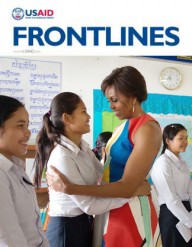

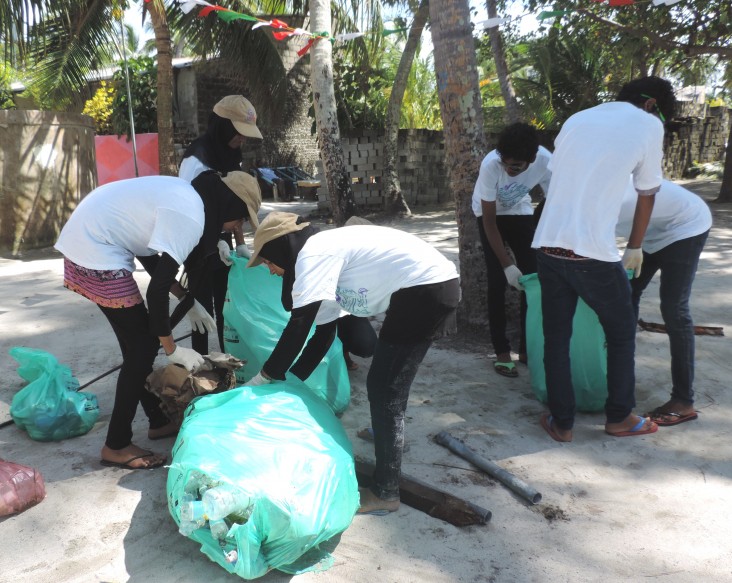
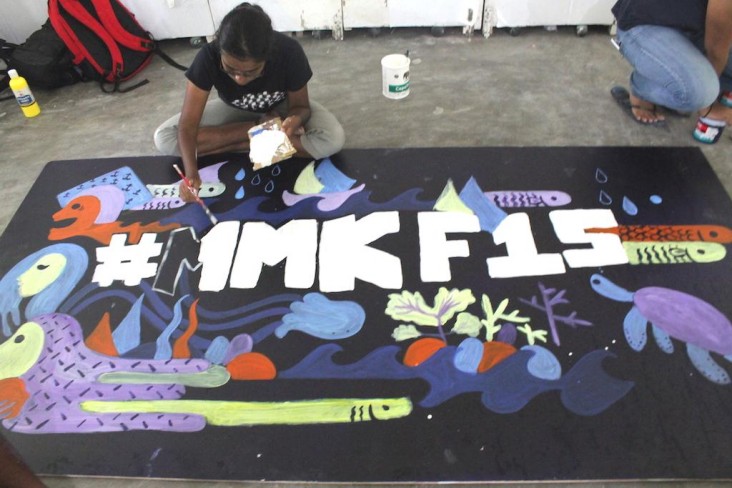
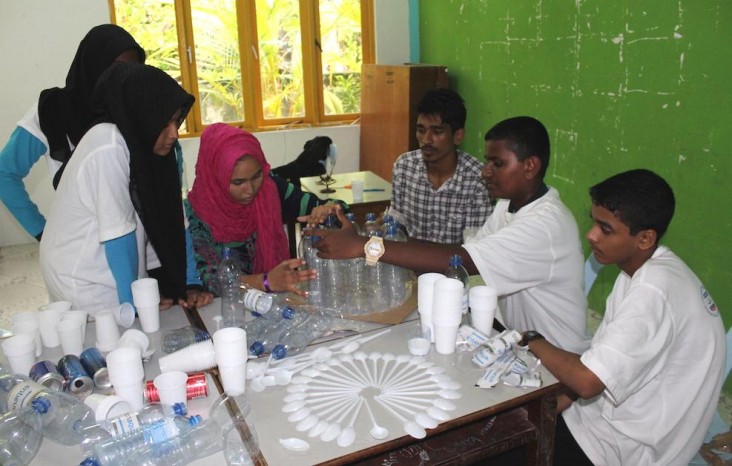
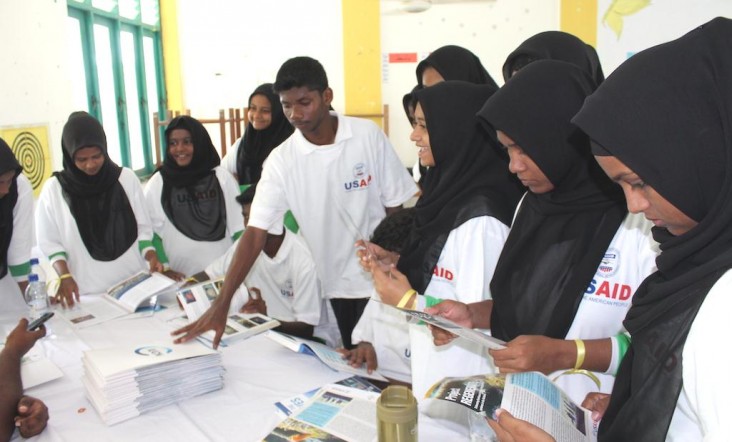
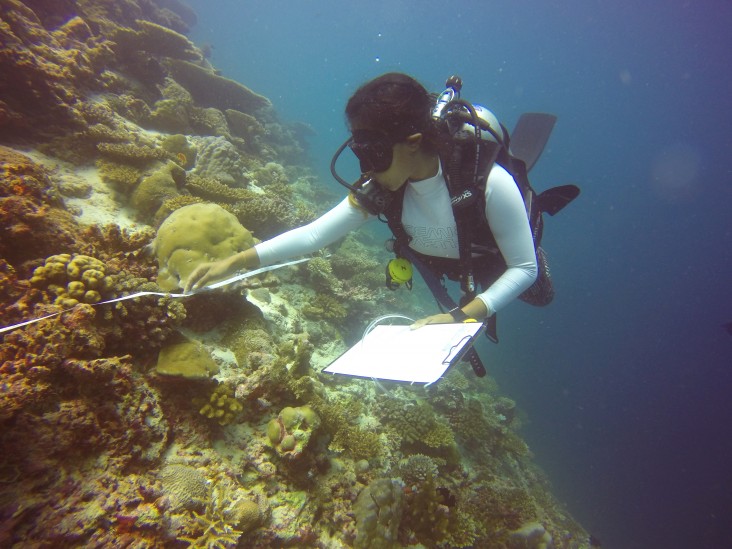
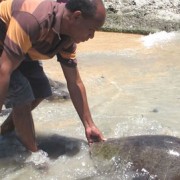
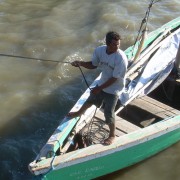
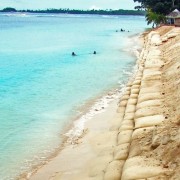
Comment
Make a general inquiry or suggest an improvement.